
With uncomfortable questions for both sides, the justices of the Supreme Court of Justice dedicated themselves today to listening to Natalia Denegri's lawyers and Google representatives in deciding whether to validate or drop the ruling on “right to be forgotten” demanded by today's journalist living in the United States. What was interesting in this hearing was how the ministers of the Court shot at the heart of each party's arguments and sought answers that were not on paper. It is that, as they made clear, it is not just a question of failing in this specific case, but of setting a precedent that will affect future decisions about the content of what appears on the networks.
Can honour be injured by spreading true information? If Natalia Denegri has a great career today, how has the spread of the Coppola case affected her? Why does it follow that with the passage of time, what surrounded that cause lost interest? What would be the criteria for evaluating what is grotesque? Why is the issue of gender-based violence only now adding to the demand? Is journalism going to be able to access that material that it seeks to delete? These were just some of the questions that judges Horacio Rosatti, Carlos Rosenkrantz, Juan Carlos Maqueda and Ricardo Lorenzetti asked when approaching Denegri's lawyers.
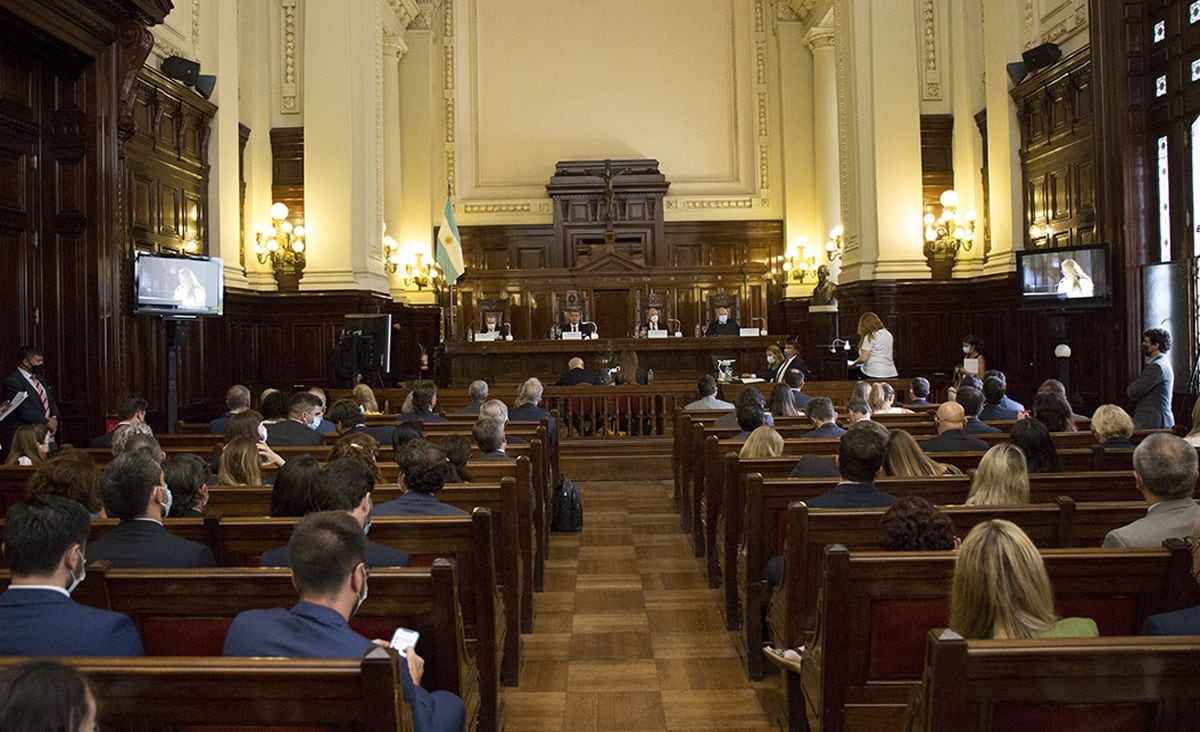
Natalia herself, present in the auditorium and on her birthday, asked to speak to the Court seeing how the interrogation was coming. Judge Rosenkrantz stated that he had been watching the Internet and came across interviews with the actor herself in which he said that that experience in the programs of the 90s had helped him and that that past “was it”. He also mentioned another note - strictly given by Samantha Farjat, another Coppola girl - telling how they were paid for those television presentations when the dollar was worth one by one.
“The one who said about getting paid was Samantha Farjat, it wasn't me,” Natalia told the judges. And the other thing I said was because in the United States I was ashamed to tell everything I had to go through,” he said. “I was a minor, I was vulnerable, I happened horrible things, I didn't understand anything about television, production, all those videos were armed, with extortion, with threats. I have a career today. I didn't ask to be famous. I was famous for a court case and all my dreams came to an end overnight... And the subject of the videos hurts me because the first thing that comes up when I put my name are those videos that stigmatize women and continue to re-victimize me.”
Google's lawyers also had to get around the questions that ministers fired. The focus was on Google's active or passive role in evaluating publications and the possibility of removing it from the network.
“Google collects information, for example, video, indexes it, that is, orders it and presents it at the disposal of society... If it collects and indexes it, it can also de-index it; that is, it is a possible action,” Lorenzetti said. The representatives explained how the work was done, but Lorenzetti interrupted: “But the question is what Google can do. Google makes a selection. It prohibits contents of child abuse, the war in Ukraine, hate speech... It makes an assessment and determines content... The role is not passive. is that so?” , he asked and, after the answers provided by the company, he considered: “It's not just automaticity, there are valuations and that weighting is done by the company.”
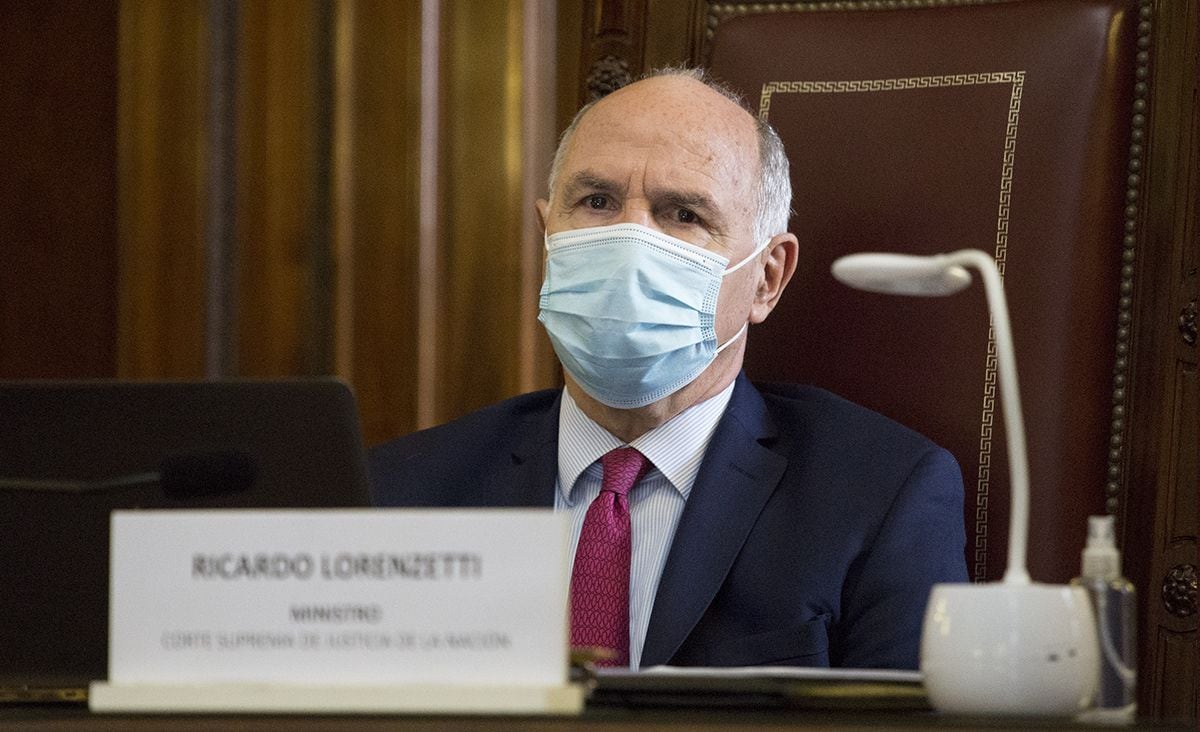
In addition, Judge Lorenzetti sought to clarify precisely what Denegri's claim was with Google, in order to give the case a legal framework. The lawyers doubted when answering whether the protected legal asset was, in fact, honor or privacy. The relevance of the questions asked by the minister aimed to clear whether it is a case of right to be forgotten or a preventive action for harm, present or future, typical of common law in which the highest court does not intervene.
Later, even Rosenkrantz and Rosatti set an example by asking the company what would be the first thing that would appear in the search engine if they put their name and what is the criteria for something to appear first and other things do not appear. Representatives of the company tried several times to come up with the answer that the order was given according to the revelation, but the questions remained.
“It's just a very complex issue,” one of the lawyers ended up answering after the interrogation. “It is that we have to make a ruling, even if it is complex,” the President of the Court Horacio Rosatti replied, when they had already been hearing for three hours.
Everything is focused on this kind of leading case for the “right to be forgotten”. That girl who in the 90s was involved in the file where Diego Armando Maradona's manager Guillermo Coppola was imprisoned in an armed cause is now, 25 years later, asking that Google delineate her name from the publications where the media show that generated that case is seen. Today she has a new life in the United States and she does not want her children to see that past that revictimizes her.
Yesterday, ministers listened to the “friends of the court”, twelve interested voices who are not part of the process and who gave their arguments, for and against the lawsuit. Today, the hearing began with the position of Prosecutor Victor Abramovich. There, as he had done in writing, the representative of the State argued that the Supreme Court had already recognized “the different dimensions of freedom of expression and access to information” and recognized the “right of Internet users to search and access” published data.
As he stressed, “this right is more intense when we are faced with information of public interest”. Natalia Denegri, he said, is. Especially now that she is a successful journalist in Miami. “What would happen if all the protagonists of this event (the Coppola case) asked for their own de-indexing” of the links. “In the case, it has not been suggested that the information had an illegal origin or that it was due to coercion or that it constitutes gender-based violence, as is now being proposed. That should have been analyzed in the previous instance and addressed by an expert,” he said.
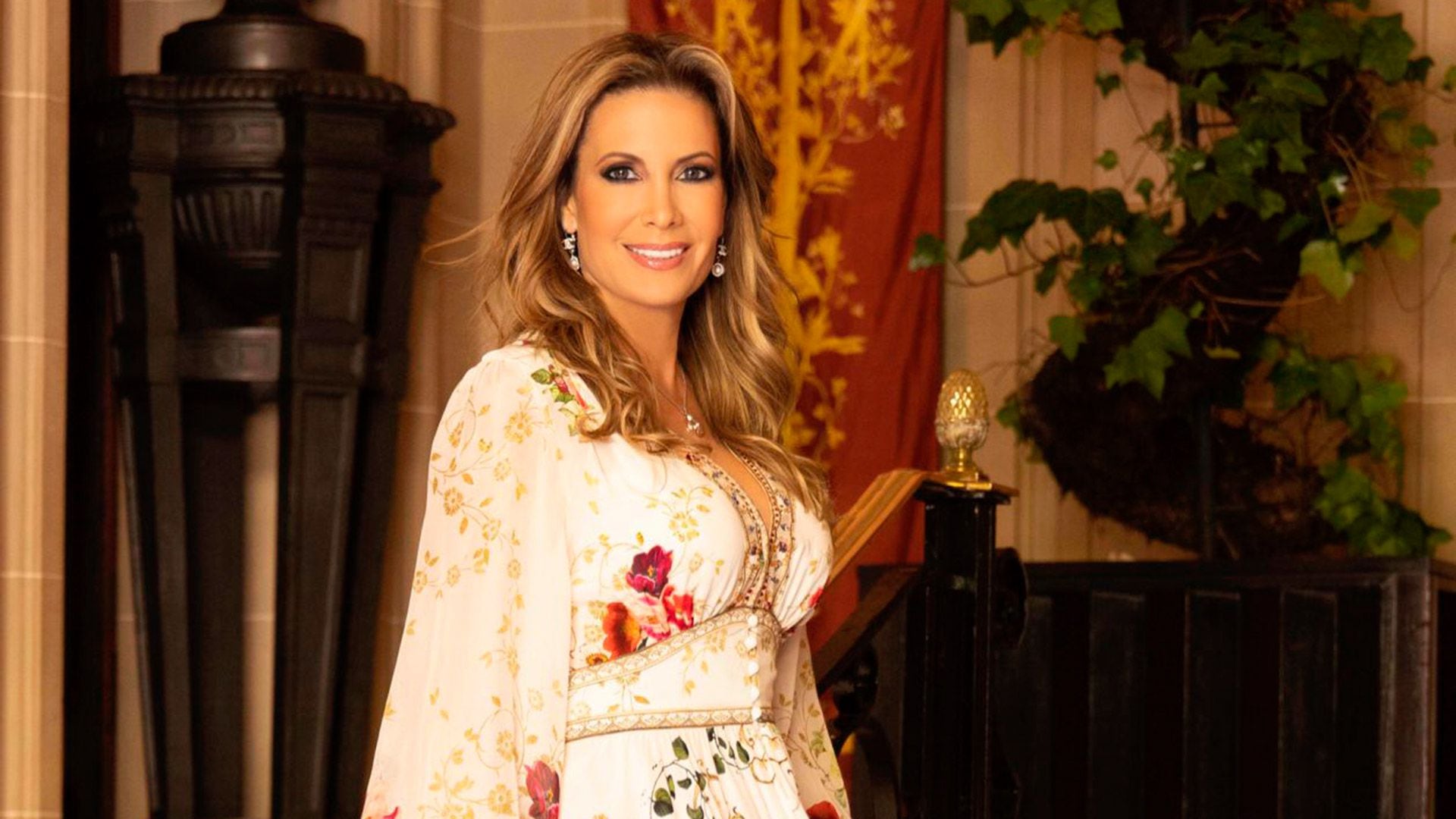
The prosecutor stated that “all aspects related to the journalistic and media coverage of the Coppola case”, especially those that “include the quarrels and discussions of its protagonists, are of public interest.” Moreover, he added, people are more interested in that than the judicial case itself. It was then that he questioned the ruling of the Civil Chamber in question because “it introduces subjective variables on the criterion of journalistic quality: it is a complex variable that is difficult to control from the judiciary”.
Abramovich further stated that the resolution “presupposes that the passage of time shuts down the public interest”; but he stated: “perhaps journalistic interest but not necessarily that of the people”. “The Internet is today the place of public discussion and servers play an essential role, in addition to an economic interest it plays an essential role in the public sphere. This is the paradox of public discourse, there is a risk of hindering public discourse and freedom of expression.”
The author's lawyer, Adolfo Martín Leguizamón, argued that he was surprised that certain issues were not being taken into account: that they were not affecting freedom of the press or of information, that Natalia Denegri had been a victim of this, that the programs they were asking to delete were not of journalistic interest and that nor did they ask to delete that material from the network, but that it should not be linked to it directly.
“We asked for the television extracts showing four women, one of them a minor, a girl, who was thrown into a Roman circus against her will. It is proven in the file that she was warned that after her arrest that police officers waited for her, telling her that if she did not participate in those programs and say what they wanted she would suffer a greater evil. And I am making an effort to understand what the cultural interest would be where four women insult each other and quarrel, something that would be embarrassing today.” The lawyer pointed out that strangely enough, of the more than 20 links that had been asked to delete, strangely enough most were no longer on the web.
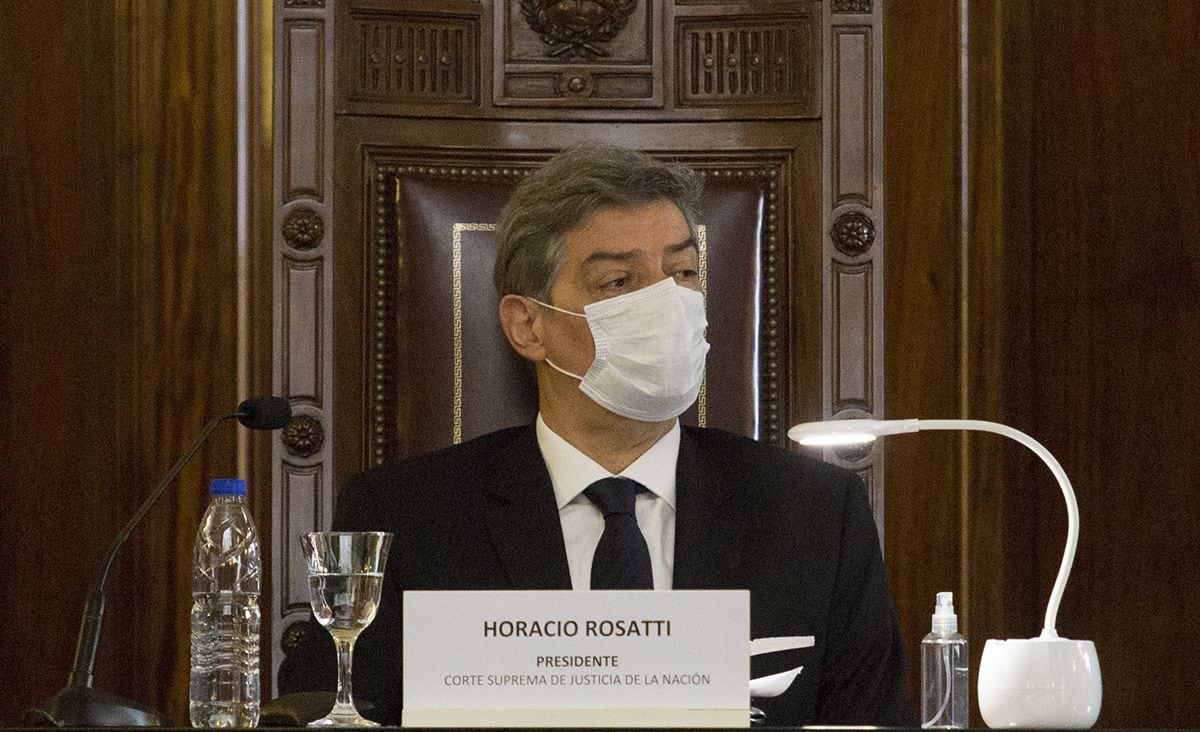
“If we talk about honor, let's leave privacy aside. Did she expose herself voluntarily or not?” Lorenzetti asked at one point. “Can anyone who is ashamed of what happened in the past ask for this right?” It was then that he stressed that Natalia Denegri now has “an honorary career” and gave as an example that, in general, “all the rockers started very badly”. “Is it intended to limit the past and that people have a present without a past? Does this mean that each person would have a right to say how much information is on Google?”
Denegri's lawyers were parading in front of the microphone - one of them raising her voice, which surprised the audience. At noon, two hours before the start of the hearing, the round ended for them and the Google round began. The answers were led by lawyer Mariano Francisco Grondona, who had already faced public hearings of the Supreme Court in the case brought and won by María Belén Rodríguez.
In that case, the former model was linked to pornographic sites without her consent and that is why the search engine had to download the publications because of the illegal content of their content. Google insisted today that in this case the information was lawful, but here “the right to be forgotten affects information and the public interest in the Coppola case for judges the court case but for most people it is television. If such a principle is adopted, where people can regret the past that did not violate privacy at that time, it opens a huge door to erasing an enormous amount of information that is not in the public interest.”
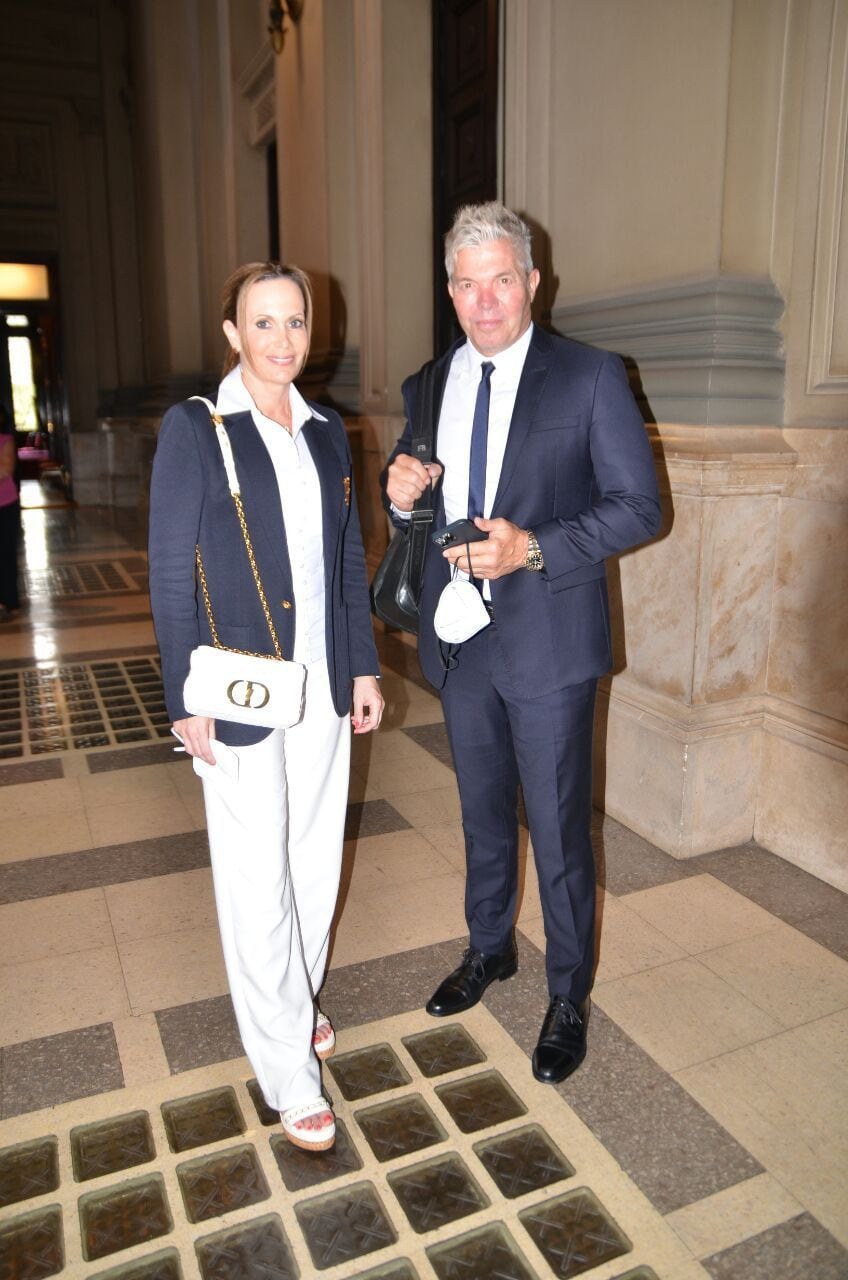
Given the references given by the company, Maqueda wanted to know if, as was the case in Europe, there was any form in Argentina to claim the right to be forgotten before the company. Google admitted that they had policies to download publications if they contained political facts or violated the firm's policy, but not for the case of the right to be forgotten. The questions went to the Court's jurisprudence where the right to privacy was recognized and the publication had been condemned for the stolen photo of former radical leader Ricardo Balbin when he was already in his last days of life.
“Here the debate realizes where it goes. Some may interpret this to be handled like a robot, but one warns that it is not so,” said one of the ministers. The company insisted on explaining the criteria, but Rosatti insisted that the Court must resolve a key issue where it must weigh public and private interests. At 13.15, the hearing finally ended, without either party feeling the winner. At least he knew his opponent had passed it too. Natalia Denegri retired from the courtroom and insisted to journalists that she was a victim and that she hopes the Supreme Court will prove her right.
KEEP READING
Últimas Noticias
Debanhi Escobar: they secured the motel where she was found lifeless in a cistern
Members of the Specialized Prosecutor's Office in Nuevo León secured the Nueva Castilla Motel as part of the investigations into the case

The oldest person in the world died at the age of 119
Kane Tanaka lived in Japan. She was born six months earlier than George Orwell, the same year that the Wright brothers first flew, and Marie Curie became the first woman to win a Nobel Prize

Macabre find in CDMX: they left a body bagged and tied in a taxi
The body was left in the back seats of the car. It was covered with black bags and tied with industrial tape
The eagles of America will face Manchester City in a duel of legends. Here are the details
The top Mexican football champion will play a match with Pep Guardiola's squad in the Lone Star Cup

Why is it good to bring dogs out to know the world when they are puppies
A so-called protection against the spread of diseases threatens the integral development of dogs




